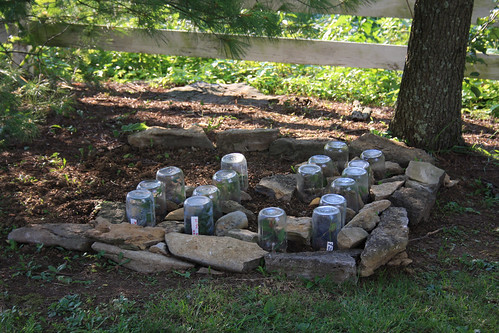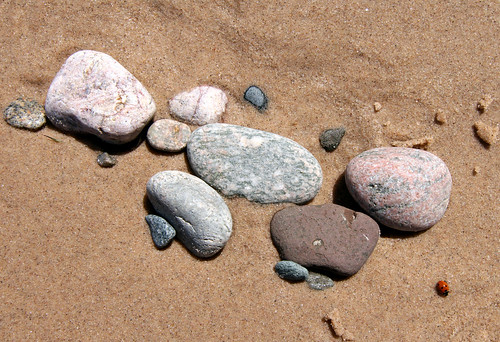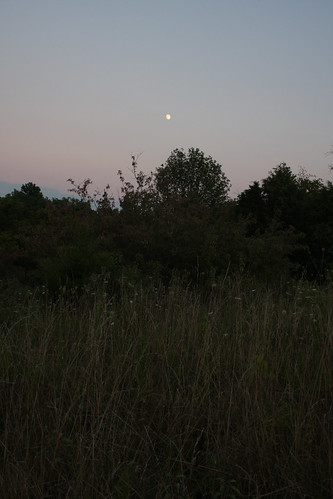|

Celebration of May
1st.
(*photo credit)
May 1, 2012
How Do We Make May Day a Worker's Day?
During much of the 20th century, May Day
was regarded by the Soviet Union and its associates as a time to celebrate the
worker. In much the same manner, on Labor Day we in America celebrate workers
and take a critical look at labor safety and justice conditions. However, let's
look beyond worker safety to other related issues.
In-sourcing:
An effort is being made to return jobs to America and bring back some businesses
using the incentives of skilled labor, lower-priced natural gas, proximity to
markets, and lower transportation costs -- and more recent tax benefits proposed
or real in certain parts of the country. Productivity is high per unit of
product, and the patriotic incentive of "Made in America" cannot be discounted.
Yes, new job creation is restricted by use of computers, robots, and
labor-saving higher tech machinery.
Infra-structure construction:
Considering that our country should never tolerate unemployment, the answer is
to tax the wealthy and corporate profits and deductions, and use proceeds to
create WPA-type jobs that will equal the workmanship of the post-Great
Depression programs. No doubt the work is needed today and we certainly have
willing workers; it is the funding that demands a national willingness to get
the financial resources from the coffers of the tax havens.
Skills and technical training: The above in-sourcing phenomenon can only continue to flourish if we have
skilled people, because the age of workers pushing buttons or putting in one set
of bolts on an assembly line is fast disappearing. When a robot replaces a
barely thinking person, the likelihood is an unemployed and unskilled worker.
Certainly some new skills can be taught the under- or unemployed and should be a
governmental priority in order to raise the level of employment capacity in our
country.
Job Fairs
are perfect May events, and a component in getting more people employed -- since
several million jobs are to be filled at this time -- and the challenge is to
get people to move to the job and not the other way around. Yes, fill job slots
that are currently going begging for the sake of the entire economy. Why look
outside of our country? Make the opportunities available to more and more of
our willing workers.
Out-sourcing volunteers,
especially in health and education fields, could give valuable experience to new
graduates and also benefit poorer nations through the skills of these willing
people. Government grants to help forgive college loans could be part of this
volunteer program, for many are under stress to repay loans when other expenses
take an intolerable toll on nerves.
Prayer:
Lord, allow us to think about creating programs that benefit those willing and
able to work, and to address worker opportunities with a fresh sense of urgency.

Old milk jug in Kentucky creek, much-needed work to be done in collecting such rubbish.
(*photo credit)
May 2, 2012
Is There Enough Work for Every American?
The right to employment is part of the right to livelihood, and
our government is the ultimate guarantor of this right when private job openings
are limited. In these uncertain times millions of unskilled workers have been
replaced by robots -- and the productivity per worker keeps rising. Is there
enough work to go around for everyone? The following are six arenas that may
allow for a fully employed work force:
1. Subsidize home and pre-school care
for infants, elderly, and all home-bound. Every home-care giver deserves a
living wage because the good of our people demands that those in need of
constant care have dedicated caregivers who earn their keep. This removes many
from institutional care, and those benefiting could include half the 17 million
American un- or underemployed. All pre-schoolers deserve approved experienced
guardians in home facilities -- and paid by governmental funds.
2. Keep the under 21 year olds in training
(in many cases technical school for acquiring meaningful work skills) until 18
years of age and thus keep dropouts out of the potential labor pool. Through
subsidy encourage the 18- to 20-year-olds to continue in skills training for at
least two additional years at public expense; that could be less than $50
billion in costs -- easily met by savings from reducing military personnel
numbers.
3. Reintroduce Conservation Corps
for young people after formal schooling so that they can gain access to
experience that will be needed in the future. Forest management, trail-making,
eradication of invasive species, road beautification, urban forestry projects,
surface mining and brown fields reclamation, park improvement, and heritage
building enhancement are just some things that could keep a million youngsters
meaningfully employed.
4. AmeriCorps and Peace Corps expansion
could take several hundred thousand newly graduated college students with
reduction or elimination of debts through years of service overseas.
5.
Renewable Energy Development
would only require that a level subsidy field be given by Federal policies to
wind, solar and other renewables in contrast to current fossil fuels
favoritism. In fact, renewables would be enhanced, and upward to a million more
people employed (often privately) through a carbon tax that could be directed to
renewable projects.
6.
WPA-Type Infrastructure Improvement
could give work to at least one millions workers in road maintenance, bridge
replacement, airport expansion, waterway upgrading, flood control, and other
related projects so vitally needed today. The monuments still serviceable in
post-Depression projects could be replicated today.
Prayer:
Lord, teach us to use our ingenuity to connect people, jobs, and funds for the
good of all people.

Finding a nest of turkey eggs in the forest.
(*photo credit)
May 3, 2012
Isn't It Time to Conquer Tropical Diseases?
Several times we have reflected on failure to give attention to
tropical diseases that afflict the poorest of the poor in distant Africa, Asia,
and Latin America. Part of the problem in the past is that the drugs were not
affordable by those in need, and the "free" market lacked incentive to do
tropical disease research.
Cancer and affluent diseases are quite well funded; however, the
tropical diseases offer high potential "bang for the buck." In 2000, the
Millennium Development goals focused on HIV, tuberculosis, and malaria and the
doubling of funds from 2001 to 2008 brought a decline in malaria by one
quarter. In 2000, about $6 billion were given for global health-related efforts
and even with the Great Recession this has climbed to about $28 billion in 2011,
with U.S. bilateral aid accounting for over a quarter of this amount (Reference:
The Economist,
February 4, 2012, p. 65). However, much of this rise in global health funds has
been directed to middle income nations with the overall giving for poorer
nations somewhat flat since 2008.
In January, 2012 the World Health Organization and a number of
major governmental and private funding groups including the Gates Foundation
agreed to focus on ten of the worst of these tropical diseases (e.g. sleeping
sickness) that either kill or sap the energy of the afflicted regions in which
one billion unfortunate victims live. What potential donors are starting to
realize is that even though only a relatively minor amount of money goes for
tropical disease, immense results can and do follow. An MIT study found that
treating intestinal worms can cost as low as fifty cents per person; general
benefits and even school attendance could be greatly improved in many of these
countries for low initial outlays of money. The United Nations, national aid
and private foundations and private donors are all coming to the conclusion that
the time is right for tropical disease work.
We have noted in past reflections that the Carter Center at
Atlanta, Georgia has helped reduce and bring under control the Guinea worm
affliction in West Africa, through a combination of better medication and
sanitation -- an unusual mark of success. The other targeted tropical diseases
deserve equal attention. As for treatment, it is found that some can be treated
simultaneously with drugs for diseases such as elephantiasis and river
blindness. However, even providing free drugs through assistance programs does
not mean they will be used properly or on a regular basis as required, and some
critics say that blanketing regions with certain drugs will only lead to
drug-resistant varieties springing up -- and thus the need for better monitoring
and treatment programs.
Prayer:
Lord, help us see those who are in great need and to show a global compassion to
bring about tropical disease control and treatment.

Wild blue phlox, Phlox divaricata, Madison Co., KY.
(*photo credit)
May 4, 2012
Do Super PACs Destroy Our Democratic Process?
On
May Fellowship Day
we are shocked again by the immense corroding effect of big money or "Super
PACs" on American democratic process. This new word is rapidly becoming
familiar in our lexicon and practical politics. In 2010, the U.S. Supreme Court
made an awesome (to many of us, "awful") decision in the now infamous
Citizens United
case. Independent funds could not be limited in federal elections, and this
opened the floodgates for massive amounts of undisclosed funds going through
subterfuges with anonymous names to tear down or build up targeted candidates.
And of course the mass media reveled in this new-found income that could spell
victory or defeat for one or other person regardless of qualifications. Money
and cleverness of promotion spells victory.
In 2012, the spectacle has moved to one of downright wanton
disregard for the electorate. The superrich have power through the money in the
media to decide on the one who ought to be elected and a complacent electorate
obeys the well-funded favorites. This occurs to such a degree that the
democratic process is subverted. The U.S. Public Interest Research Group
calculates that the super PACs in the first two years of existence raised $181
million, and since the initial writing has most likely gone far past $200
million. This money was given by a very small number (perhaps fewer than 200 of
the undertaxed and profligate superrich -- whose salvation demands to be shaved
down to average citizen size). In fact, half the funds come from as few as 37
people giving as much as a half million dollars each. Recall that casino
magnate Sheldon Alderson and wife gave $10 million this year to Newt Gingrich.
A lethargic electorate will view with little reflection what they
see on the TV screen, and when the message is repeated enough times with
convincing voices and visuals the gullible are taken in once more. This glib
approach to information gathering and vote deciding allows the power of the
super PACs to be realized even when the elections are local or statewide. One
candidate who the rich decided upon is the one who is best able to handle the
interests of the funding source -- and democracy erodes all the faster. Beat
down this person; build up that one. If such a pessimistic outlook is
anticipated then the super PAC has become an instrument of devastating effect
and can ruin the election process
Super PAC special interests are hardly ever environmental ones,
for environmental corrections are often costly and cut into corporate profits.
Super PACs are most effective in four areas of our corporate "free market"
economy, namely, the military-industrial complex, big banks and financial
institutions that "must not fail," Big Energy and lax regulations, and the big
drug and health insurance conglomerates. These four, plus their revolving door
lobbyists of ex-legislators and associates, can bring ruin to our democratic
process. How long will we allow superrich mischief?
Prayer:
Lord, give us backbones to stand up against unfair practices that harm our
people.

Dwarf larkspur, Delphinium tricorne.
(*photo credit)
May 5, 2012
Are Earthhealers to Be Exemplary Good Samaritans?
And who is my neighbor?
(Luke 10:29)
At various times we tend to restrict neighborhood to those closer
to us -- and that occurs when we are aware that we have limited resources to
share with others, whether those resources be time or energy or material goods.
However, occasionally the needs of those far more distant seem far greater than
those nearer to home and thus we strive to extend our concern outward to them.
We even find ourselves asking whether in choosing one area of concern over
another we are hardening our hearts to some. We realize that past sufferings of
others may hurt us; future limits caused by our indebtedness in resource use
will haunt us; and present suffering challenges our discernment and endurance.
The degree of compassion is a key.
Jesus
shows us how to be with others in their current suffering -- through immediate
compassion that is shown to those who appeal to him in person. The Scriptures
speak through example of Jesus' response forthrightly given to a wide variety of
people he encounters in his journeys. We strive to be more Christlike. Our
lived experiences are certainly different, but that should not stop us from
first seeing sufferers as the Good Samaritan does with the robbed victim; the
Good Samaritan takes what supplies he has at hand (oil and wine) and gives
immediate assistance to the sufferer; he then continues by taking this person to
the inn for rest and even pays the fee for his lodging. But this is not
sufficient; he makes a commitment to do more, and thus says he will return and
ensure the person's needs have been met.
Jose Laguma
("taking Stock of Reality,"
CJ Booklets,
#143 2012) says Christianity gives a possible utopia that is both place and
way. He quotes the Salvatorian martyr Ignacio Ellacuria as having three moments
of reality:
noetic moment,
taking stock of reality;
ethical moment,
taking responsibility for reality; and
praxis moment,
taking charge of reality. These three appear to be similar to our various
descriptions of Earthhealing as the
HERE,
or the acknowledgment of the existing situation; the
NOW,
or the decision to take responsibility and act with compassion; and the
WE,
or the commitment to undertake the healing in a spirit of collaboration with all
people of good will.
Within the movement towards teamwork we see that our ability as a
social unit is handicapped by addictions we suffer as a people. Thus, the WE
now undergoes the larger incorporation of a Higher Power, without whom we will
not achieve the results we seek. The insatiable appetite of the consumer
culture leaves people constantly striving for more material things. We cannot
act. Desolation in our inability leads to further acknowledgment of
imperfections, and compassion leads to seeking a more spiritual solidarity among
believers.
Prayer:
Lord, help us see those in need, respond immediately, and continue our concern
through commitment to joint healing action.

Asiatic dayflower, an aggressive exotic pest, invades improperly tended vineyards.
(*photo credit)
May 6, 2012
Is Addressing Excessive Consumerism Like Vinedressing?
Whoever remain in me and I in them will bear much fruit.
(John 15: 1-8)
Vine Sunday
hits close to home, for I was taught vinedressing from my father who would trim
the vine twice, once in early spring before the vines grew, and once in
mid-summer to allow the grape clusters to mature without extra unproductive
vines. Jesus mentions this twofold practice in the Gospel of John passage. We
are vines connected to the root of Christ, and we know that to detach a vine
from the total plant causes it to quickly wilt. When close to Christ, we are
like productive vines; we need to see the dead wood of excessive consumerism
(unneeded material products) removed by the pruning tool in spring, and then the
later growth (wasteful types of goods) trimmed still further in our summertime
of life. By careful use of material things we are drawn away from a
consumer-based economy to become a spiritually fruitful people.
The analogy of proper plant care is interesting:
* Vines need nutrients and moisture in order to thrive, while we
need a connectedness to Christ through prayer and sacraments;
* Vines must be protected against the rash elements, and we need
the Lord's protection against worldly temptations, including excessive material
goods;
* Vines are expected to bear much fruit at the harvest time, and
we bear fruit as part of the community of believers;
* Vines are expected to yield grapes for years to come, and we are
expected to help build a future New Heaven and New Earth; and
* Vines have their natural beauty, and so do those who conserve
and use resources properly.
We are part of the total community, the vineyard of the Lord. The
long history of our Church is one of connectedness as revealed in the marks of
the Church (one, holy, catholic, and apostolic). Unity and holiness are part of
our mission. We are connected through the ages back to the Apostles, and being
connected today with our Pope. At confirmation I am touched by someone who was
anointed by someone back to Christ; in our world today I know someone who knows
someone who knows the Pope, Christ's visible representative. We are connected
in space (universally) and in time (for 2,000 years).
Excessive consumerism distracts us from our important mission of
furnishing fruit. God is our vinedresser and we, as vines, need the nourishment
furnished by the Lord. We need the spiritual connection with Christ, and
through discernment we come to realize that consumer products are deadening and
wasteful, distracting us from the spiritual mission at hand. Our fruitful
efforts are expected to be here and now for others to see and follow; they are
also meant for the future and thus we must trim them so that others may benefit
in the future. Well-tended vines are meant to last.
Prayer:
Lord, teach us to be fruitful vines and in becoming fruitful to be changed into
those who care for other vines.

A quiet place for a backyard garden.
(*photo credit)
May 7, 2012
Can an Herb Garden Be a Place of Prayer?
This spring our three-acre parish grounds are being gradually
transformed into an edible landscape, that is, one that furnishes food for
residents and feed for some wildlife. To see this through we have enlisted the
services of a local Boy Scout troop, the supervisors of whom will follow through
to completion. Currently we have transformed about half of the lawn space into
fruit trees, a blueberry patch, and several garden plots. We protect the bases
of our eight varieties of fruit trees with plastic guards, and we ring garden
plots with rows of mustard to discourage rabbits from entering these areas. All
the while we want to make this a community project and the grounds a meditative
garden with a variety of produce.
The intention is to expand the current stands of herbs among salad
greens: perennial mint (two types), oregano, and garlic; and annual parsley,
basil, dill, and cilantro. In addition to these now in place we intend to add a
number of the biblical herbs along with native and locally grown ones with the
assistance of our active local
Garden Thyme Herb Club.
We intend to add chervil, chicory, cumin, feverfew, horehound, horseradish,
lavender, lemon balm, nettle, fennel, rosemary, sage, savory, thyme, and others.
Previously we were hesitant to include the parish grounds in a
neighborhood project due to supposed limitations on church insurance coverage.
Furthermore, we sought to avoid damage whether by leaving church doors open or
by inviting the neighbors to the garden space, since the well-equipped local
recreational park space has been damaged by vandals -- the price for openness.
However, we were encouraged by other groups changing their grounds to meditative
garden space and this becoming an integral part of church ministry. Our grounds
are an ideal space for stimulating all senses to experience "sacred space:"
sight
of the surrounding mountains;
sound
of bees and crickets along with local birds;
smell
of the more aromatic herbs; occasional offerings of
taste
of the herbal plants and nearby fruits and berries; and of
feeling
of the breeze and sunshine. We have declared the outdoors as part of church
activities, and thus included the garden space as meditative grounds available
as an outreach project for all the people.
Improving and maintaining such physical facilities will take some
effort. The entrance is to be clearly marked and the walking space must be
hardened enough to allow for elderly with walkers and wheelchairs. The beds
will be bordered over time and the plots prepared and plants identified by
signage. In due time better approaches will be built as well as benches
installed. The final product will need to be promoted on a local communitywide
level and some effort to ensure that the park is not vandalized -- and that is
always the ultimate challenge.
Prayer:
Lord, teach us to extend the "Holy Land" to our backyards and to make these into
places of prayer and reflection.

Rose pink, Sabatia angularis, Knox Co., KY.
(*photo credit)
May 8, 2012
Does Coal Have a Future?
Sitting within sight of a major coal-haul railroad-switching
center in America, in the number-two coal-producing nation, it is perhaps a
perfect place to ponder the future of coal. For a number of years the Sierra
Club has had a coal-fired powerplant project and count about forty closures.
What about factors that will hasten or retard these closures?
*
True electricity-generation costs:
Is the coal really as cheap as all think and pay in current electricity
production, or are we deferring some costs to future generations, namely,
immediate air pollution effects, reclamation of land, ash deposition, and
long-term respiratory health costs?
*
Health costs:
In an age of escalating health costs, will society require coal extraction to
bear its fair load of expenses without subsidies and tax incentives and breaks?
*
Land disturbances through surface mining:
This has had major environmental impacts and the need for reclamation will add
large extra costs if properly paid for today.
* Ash deposit problems:
Could the burnt coal residue be turned into concrete and other products, and
avoid deposits that are worrisome to nearby residents when allowed to escape?
*
Accessible alternative sources:
Will renewable energy sources (especially wind), along with natural gas from
newly technically feasible fracking operations make other fuels more worthwhile
and continue the current trend of closing down old and cancellation of
construction of new coal-fired power plants?
*
Global trends:
If the trend is true in America, does use of coal in electricity production
follow that trend in China and India and other nations; rather are they not
moving full steam to mining and importing ever larger quantities of the black
gold?
*
Competition with natural gas:
It appears in most recent research that natural-gas-drilling escape is double
what was though, and is closer to 4% of total amount drilled. Since methane is
about 25 times more powerful than carbon dioxide greenhouse gas, it means that
the two fossil-fuel sources are about equal or even slightly worse for natural
gas after all factors are considered.
Future technologies:
Is it possible to effect gasification of coal in situ without major land
disturbance or external pollutant escape? It most likely is wishful thinking.
Certainly coal emission capture procedures are being tried, but how successful
can they be without expenses that make coal uncompetitive?
Prayer:
Lord, give us the courage to discern future trends regardless of the complexity
of the situation.

Lady bird beetle, blending in among pebbles along Lake Superior.
(*photo credit)
May 9, 2012
Is Admitting "Through My Fault" Part of Earthhealing?
In the revised church liturgy text initiated in November, 2011, we
are encouraged to use a longer confessional text for the beginning of the Mass.
On further reflection I became convinced that this text ought to be used more
often. In saying more than "Lord have mercy" all members of the congregation
strike their breasts three times and say that these misdeeds were through "my
fault." Yes, for some this is a weekly experience that is utterly different
from an "innocent" American culture where it is always the other guy's fault.
It is a world of perfect performance, perfect children, perfect friends, perfect
ME. This is a fault.
Know ourselves.
We are the wrongdoers and we admit this before the congregation, an act that is
embarrassing, and on top of this we are admitting our faults before the entire
heavenly court. We need cleansing so we can proceed with the Liturgy; we seek
the warm embrace of a merciful forgiving God.
Act responsibly.
The state of being forgiven is a moment of liberation, a freeing from the bonds
of sin so that we can act in a more effective manner and truly join
wholeheartedly into the celebration, without reserve. Here we see that we help
make up for what is wanting in the sufferings of Christ. We help repair the
damages done by becoming more perfectly united to Christ.
Commit ourselves for others.
In freedom we are prepared for the work that is ahead of us. We are to extend
the Word through spreading the Good News and the love of Christ through the
deeds we do for others. We commit ourselves to improve our work over time.
Being immersed in our culture, we fail to see that faults, in fact
every personal fault, create social disorder which need to be rectified. In
healing our wounded Earth it is not sufficient that we merely stop performing
misdeeds; we must also repair the collateral damage that persists after we cease
wrongdoing. These repairs were the many additional fasting and prayers that
were recognized throughout the Church's history and are real even today. The
original concept of
indulgence
(certainly not a freedom to commit sin as some falsely said) was to help restore
the world to a proper order. In time this concept became misapplied.
Cap and trade is based on this false concept of indulgence,
namely, one is permitted to continue practices provided others make the
restitution that is needed. Here the wealthy get off by paying others to be
more socially responsible and less polluting. It is far worse than previous
misunderstandings, for here the trader is removed from social responsibility by
paying a group that will do doubly much to repair the damages done by the
trader's misdeeds. However, a socially responsible theology must acknowledge
our own faults and we must resolve to make proper restitution.
Prayer:
Lord, teach us to take responsibility for our own actions and not try to load
them off onto others.

Joy of springtime in Appalachia: the mountain laurel, Kalmia latifolia.
(*photo credit)
May 10, 2012
How Do We Rejoice in Springtime Joy?
You crown your year with your bounty,
abundance flows wherever you pass;
the desert pastures overflow,
the hillsides are wrapped in joy,
the meadows are dressed in flocks,
the valleys are clothed in wheat,
what shouts of joy, what singing!
(Psalm 65:11-13)
We are often using the term "joy" in the Christmas and Easter
major feast, but should not this special characteristic of who we are be
reflected throughout the seasons and the year? Maybe we need to go out on a
hike and simply enjoy what we see in the landscape, the sound of the birds and
bees, the feel of the warm sun, the smell of earth and flowers, and the taste of
a wild strawberry or any edible thing in season.
Experiencing joy a day after reflecting on our own faults is most
fitting, for we are people who know how our misdeeds have been forgiven, and we
are enabled to help repair damages. We know that the beauty of creation still
shines through -- for God's forgiveness is expressed in the verdant land. The
month of May is when vegetation covers over the scars of a landscape, and we
affirm with joy that earth is made anew to the glory of God.
The following is my reflection found in the book featuring Warren
Brunner's photographs,
Mountain Moments
(Acclaim Press, 2010). Pick up a copy and see the pictures. One is of a little
girl who is running down a hill, photographed by Warren in her first chance to
run after a bout at being an invalid -- what joy! Mobility, whether fleeting
clouds, or growing plants, or winging nestlings, or bolting colts, or humans
free of faults are all moments of joy -- and God enjoys every moment of it.
All creatures exude joy. Why not? They exist and that is cause
for joy. Spring showers, summer rain, autumn mist and winter snow all show
joyful moments. The sun sends smiling beams on the hills and warms them so they
smile in return. The winds and breezes speak more loudly and the rivers clap
their hands as well. This is more than poetic license. All nature has a bounce
that cannot help but infect those who reside here. This happy surrounding is
enough to make us smile and delight in what God has given us. St. Francis sees
it in brother sun and sister moon; so ought we. We smile with Earth and all its
parts but more -- we can freely articulate this joy through prayers of praise
and good works for others. Let's get all to smile and enjoy life itself.
Prayer:
Lord, teach us to express joy in smiles, and greetings, and encouragement to
others, and just spending time in springtime in the wonder of your creation.

Via Dolorosa, Old City, Jerusalem.
(*photo by Annemarie Angelo, Creative Commons)
May 11, 2012
Why Declare the Holy Land a Pilgrimage Destination?
A host of reasons make us inclined to declare the Holy Land in the
Middle East a global destination, which many could seek to find once in a
lifetime. In so doing all contribute to the cause of global peace. Twenty
years ago this spring I made my only visit to this part of the world as a
participant of the
Society for the Protection of Nature in Israel.
Memories are still fresh.
Culture
in the Holy Land bubbles over. Here in the Middle East is the focal point of
three world religions: Christianity, Judaism, and Islam. Many of the over half
the world's believers are followers of the Book; they would like to see holy
sites at least once in their own lives. If every person were given such an
opportunity just once it would mean a million pilgrims every month of the year
continuously being repeated -- and others would perhaps want to return a second
or third time.
Pilgrimage
is a form of tourism with a religious goal in mind. At this junction of three
continents modern land, air, and sea travel are available. For those who cannot
journey, a virtual series of DVDs and television programs are available and this
can give some pilgrim experience much like making the "stations of the cross."
I have just completed
The Holy Land in Colour by
Sami Awwad and this brought back memories from that sole 1992 trip. We know
that Muslims desire to make the Hajji, a once-in-a-lifetime pilgrimage to Mecca;
why not extend this to the holy Jerusalem location as well? And why should not
Jews scattered elsewhere and all Christians strive for that one lifetime
experience as well?
Economics
of such pilgrimages would benefit all parties. From an economic standpoint this
is an opportunity for local residents to run lodging, food, transport, guidance,
and souvenir services. Services and travel impact the environment less than a
purely consumer culture of material goods. Yes, energy is expended, especially
in air travel, but it is a once-in-a-lifetime expense.
Global fellowship
and world peace would be enhanced by this interreligious effort of a common
destination. This keeps down the horror of one group wanting to exterminate
another or that one group has exclusive rights in what should belong to all: a
land commons to be shared by all.
Earthhealing ministry,
often regarded in local terms, could have a global outreach as do global tours
to a multitude of places. Recognition of the Holy Land as a global asset and
destination would have a healing effect and a reordering of global priorities.
In sharing the Holy Land we worship one God -- the ultimate mission to promised
people that has not been rescinded. We reaffirm that oneness when we consider
the pilgrimage as a singular action even though ultimate sites would be
different.
Prayer:
Lord, allow all people of faith the opportunity to renew
their spiritual wellsprings and thus become Earthhealers.

All bases covered. Spring beauty, Claytonia virginica.
(*photo credit)
May 12, 2012
Is Earthhealing Primarily Practical?
It has been fifty years since Rachel Carson presented us with
Silent Spring
in 1962, and a lot of water has run under the bridge since then. Once a season
we reflect on Earthhealing as a broad concept of repairing a wounded world. Is
Earthhealing primarily application of existing principles and methods of
reclamation, or is there more? I did mostly practical work at the primary level
after helping to co-found the Center for Science in the Public Interest in
Washington, DC in 1970, and then spent a quarter of a century (1977-2002)
directing an appropriate technology demonstration center in Kentucky (ASPI).
Practicality was my primary concern along with raising funds through
environmental resource assessments in various parts of our country.
While experiential work is utterly necessary I hesitate to say
that it is so primary that reflection and theory are to be shortchanged.
Rather, we need cycles of active work at the practical level and periods of
active reflection on that work, to come to more encompassing levels of
understanding and action. Earthhealing is a global task; it is not the brain
child of the erudite but must be grounded in experience at the grassroots
level. You cannot treat Earth unless you first touch Earth -- and thus in older
age when far less mobile and energetic, I still must garden in order to keep
communion with earthen matter.
The healer must always think of practice as requiring two
components: actively healing self in order to be honest about what one is able
to do as a healer; and actively extending the healing to the broader world in
which we find ourselves immersed. Teaching does not come first and then we
apply what we teach or learn; teaching is secondary and follows from gaining
experience and then wanting to demonstrate that experience to others. Jesus
healed and Jesus taught but the pastoral healing experience fashioned the manner
and content of this teaching. Healing and teaching go hand- in-hand, but it is
the healing that allows us to experience Earth. Without reflecting on hands-on
healing, meaningful teaching will be devoid of needed application to other
people
This brings us to the third level of our Earthhealing process,
namely, the teamwork needed for solving current problems. The crisis is not due
to failure to understand the problem at a basic level; it stems from our failure
to acknowledge our addictions. Once these are seen as socially dysfunctional,
then we discover our need for assistance from others -- and a Higher Power.
This then makes the environmental crisis a crisis of lack of trust and love. We
find that we need the help of others for our individual work, and the expanse
and effectiveness of this work, depends on our love and fidelity. And this love
is of divine origin. These insights demand reflection and the practical
willingness to surrender ourselves to trust in God for the sake of genuine
earthhealing.
Prayer:
Lord, keep us practical, but allow a precious pause to reflect and to focus us
on where we are going.

Two bronze frogs (Rana clamitans clamitans) share a shady spot.
(*photo credit)
May 13, 2012
Why Does Earthhealing Involve Loving People?
This is my commandment: love one another as I have loved you.
(John 15:12)
Today's readings give us a sign of a loving God who watches over
all of us and expects our love in return. The love knows no national boundaries
and shows no partiality (Acts 10); the source of love is God who first loved us
(I John 4:7-10). Jesus calls us friends and commands us to love and bear fruit
that will remain. Furthermore, this vocational mandate includes an empowerment,
for God will give us the means to do what we are called to do.
Accepting social blame
involves love. The heart of the ministry of Earthhealing is an atmosphere of
love that is environmental in scope. Within this ministry we discover what the
Lordship of the Resurrection is about as it pertains to our being empowered to
work with and for the Lord. Acknowledging our own contribution as social beings
to the addictions before us means that we are part of the total mystery out of
which mercy and love must flow. The crisis is not directing blame to other
parties; it acknowledges that we are all at fault either in what we have done or
have failed to do. Blame becomes something social.
A
mother's love
is a special reflection on
Mother's Day
and a mother's special loving care. Our mothers certainly come to mind, and the
love, care, and devotion with which they brought us into the world.
Furthermore, the love of Christ takes us naturally to his own mother, who shows
a loving sense of ushering her new-found son into the world and caring for him
in his early years. Mary's Magnificat is a mother's love story, a revolutionary
movement filled with gratitude, devotion, and responsibility to bring him to the
world. This poor maiden opens for the poor the promise that they will be as
instrumental in bringing about profound change in our world.
Earthhealing knows no boundaries, nor any targeted culprits beyond
a social group including our global neighborhood of which we are partly to
blame. Love teaches us how to have a sense of total compassion, for we all
share in suffering. Our Earth commons has been damaged and in need of
reclaiming, and thus we are called to be the reclaimers to the degree in which
we can participate. Thus, all reclaimers are Earthhealers in this general
designation. We are to humbly accept our role in the atmosphere of love in
which Christ gives us the means to operate. Earthhealing involves loving what
we have to do because we are participating in making the New Heaven and New
Earth. Not only do we acknowledge social blame in a spirit of neighborly love;
we accept our responsibility in being with a loving and suffering Christ; we
accept our commitment to make restitution also in an atmosphere of love for the
good of all.
Prayer:
Lord, we are to love deeply like you love: universally for all, fundamentally as
source of love, willingly as Christ has done for us, and gratefully as being
called in friendship to show your goodness in the grateful way we act.

Horselogger Rooster Moran at ASPI field demonstration.
(*photo credit)
May
14, 2012
Is Pure Libertarianism Unchristian?
I have previously hesitated in taking up this question of
libertarianism due to wanting to remain non-partisan in these reflections.
However, something needs to be said because of the battle to include ecological
values in this year's political discussion. Issues may be private and
individual or public and social with lack of our enhancement of social
controls. The libertarian seeks to maximize individual freedom; the more
socially minded, social freedom and control. The private (generally wealthy)
party with the greater power has the solution to be imposed on the rest. What
makes this discussion more complex is that some elements of libertarianism
(freedom to take individual actions without hurting others) are to be
championed; and some are simply detrimental to the social order in which we all
participate.
I recall several decades ago when libertarians sponsored a forest
discussions among members of the regional activist Heartwood forest group in
Indiana. Several of us contested the libertarian and privatizing thrust
targeting the privatizing of the National Forests that was the hidden agenda of
the sponsored meeting -- and several of us exposed the reason for the meeting.
Again, instead of silence or subterfuge, let's address the issue head on.
Libertarians are becoming politically visible and active, and even offer
candidates in this election year. At the heart of the matter is a limit on the
social controls so needed in a globalizing world. The Christian must be not
taken up with over privatized or overly communitarian tendencies but hold to the
Principle of Subsidiarity,
namely, giving to the lowest level the freedom to act on that level when
something can better be performed at that level. Many environmental and
financial regulations are best performed at an international or global level.
Libertarianism
in its foundation is finding satisfaction in individuals being left alone and
thus free from the burdens of social and ethical responsibilities to others.
Sachs says that two as diverse as Buddha and Aristotle saw flaws in this pure
position; Christians add, so does Jesus in everything that he says in
Scriptures. We are called to be selfless, to find happiness in going out to
others, to saving ourselves by sacrificing ourselves.
One answer to the possibility of a modified "Christian
libertarianism" is that few people would admit to be purely libertarian -- and
their moderation takes them outside of purview of this reflection; the moment
they adjust their motivations and politics to enlightened self-interest (which
also has deep flaws), they are no longer purely libertarian but have moved
further to the socialized end of the political spectrum. To become more social
not only helps needy neighbors, but also sees this as a means to
self-enlightenment through giving satisfaction to others.
Prayer:
Lord, teach us to be champions of individual freedom and yet aware of the need
for global social controls with good honest government to assist in this mighty
work.

False solomon's seal, Smilacina racemosa (left), faces solomon's seal, Polygonatum commutatum, (right).
(*photo credit)
May 15, 2012
Why Are True Prophets Never Popular?
True prophets have a hard time whereas false ones are often
popular and well-received by both peers and local supporters. Since politics is
the art of the possible, it would seem that authentic prophets who place a
conditional "if" on an anticipated action are really working within a political
framework. However, I wonder whether true prophets have ever been elected dog
catcher. Why the difficulty?
Authentic prophets seek honesty and purity of the message's
content, not popularity. A revolt is the opposite of conformity that is key to
good politics; the prophetic brain is most likely quite different from the
politician who does not like resistance. Most conforming people seek comfort in
agreement, and they even regard the prophet as a disturber of the status quo --
a different goal. For the politician the message needs to be compromised and
toned down. A citizenry that denies the current conditions becomes the target
of the prophet and not his or her receptive audience. The prophet seeks to
deliver the message even if resisted, and this at any cost. The key is
primarily acceptance of the message, the HERE, not the prophet's person --
though responsible acceptance often includes a judgment on authenticity of the
prophet.
The prophetic message stands apart from a "success" of the
presenter of a word, willing to compromise nothing in order to preserve the
genuine message. On the other hand, agents of change with a more political bent
are concerned about immediate implementation, the NOW. However, prophet and
agent must work in tandem for a longer-term solution to the problem at hand.
The prophet announces the news as a John the Baptist; the agent of change goes
about a methodical approach to implementing the announced message to the best
degree possible and with a sense of urgency. The purity of the prophetic
message must not be compromised; the challenge is for the agent of change to be
faithful to the prophetic message.
To change one's ways in order to be acceptable is like the
Christian being tempted to burn incense at the Roman pagan shrine. It
seems so easy to tweak the system and make a hidden prayer that we really don't
mean what we are doing. Through tweaking, the authentic prophet becomes false
and can lead many astray. Honesty has been compromised; truth has to be put in
parenthesis, meaning apart from the lived circumstances. Each of us anointed in
Baptism/Confirmation to be priest, prophet, and king need the reflection on how
true we are to the pure message we must bring to others. The prophetic message
in these critical times must be preserved from tarnish at all costs, for it
takes prophets to challenge deniers of the word. Truth must be presented to
agents of change in a way that preserves its transparency and force.
Prayer:
Lord, preserve our prophets in this age of temptation. Help them deliver a
message that is primarily necessary, not popular. Help all to see them
within their honesty.

A closer look at the (true) solomon's seal (Polygonatum commutatum), in flower.
(*photo credit)
May 16, 2012
Is the Tenth Commons to Reclaim "In God We Trust?"
Can the liberties of a nation be secure when we have removed the conviction that
these liberties are from God?
Thomas Jefferson
In
Reclaiming the Commons
we listed nine areas of commons (air, water, land, culture, health,
communications, silent space, flow of goods, movement of people), and we did not
say the listing was exhaustive. Upon reflection, our American founding fathers
trusted in God, and our national motto was placed in the last stanza of "Star
Spangled Banner" composed during the War of 1812; later in 1864 the Secretary of
the Treasury shortened the phrase to "In God We Trust" to fit on all American
money. In many ways this motto is part of our commons though some may like to
see it erased.
Commentators say that within one generation Americans have adopted a
shocking array of addictive behaviors. The acknowledgement of our condition is
the beginning of a multi-step program to address social addictions -- though
this may not follow precisely the step-by-step individual programs. However, we
do need to include our trust in a Higher Power and surrender to the divine
will. As social addicts we acknowledge that we have lost control and we need
God's help lest we die in our selfish ways. We must gradually come to trust
that God who is all merciful and loving will assist us in the reclamation work
we need to do. No better time to reaffirm this than on
Endangered Species Day.
Breaking the addiction to our consumer culture is not guaranteed. To heal
our wounded culture will take honest work and the admission that we cannot do it
alone is a gigantic step in the right direction -- just as addicts must admit
the need for others and that ultimately means a Higher Power. To look to
ex-addicts for assistance is to say that the poor are the ones who will lead the
battle for change that we must undertake as an addicted people. The heart of the
believer's faith rests in not doing it alone or attempting to be little gods who
have a power within our natural being to rise through superior intellect to
regain control. In opening ourselves we find Christ with us; we grow in the
urgency of the mission, for he guides us.
Never before has the mission been so urgent -- and this mission is open to
failure or success. Never before has there been such a threat to human
existence (and that of all Earth's flora and fauna). The demand is for
meaningful urgent action, which needs cooperation on the part of all people of
good will. To continue to call for and to make room for this participative
action requires people who have a faith in the future, a faith that is nurtured
by real spiritual food -- not by symbols, not by play acting. Our saving work
demands the nourishment that only God can give us through the sacramental
life.
Prayer:
Lord, help us to know ourselves and take humble steps to ask your help through
repeating "In God we Trust."

A heavenward view of billowy clouds.
(*photo credit)
May 17, 2012
Why Look You up to Heaven? Why Not Act Now?
Ascension Thursday is the day we need to move out from our imposed
isolation and demonstrate to the world the virtues the Lord asks us to exhibit.
There are many ways to do this (see April 25, 2012 for different ways to
demonstrate solidarity publicly). Public work must go deeper than nervous
activism; it embraces the willingness to dedicate our lives to doing our duty to
all parties. A deepening understanding of Earthhealing causes us to
rededicate and recommit ourselves to ever more serious responsibilities.
Are we willing to act?
The disciples were looking up to heaven for the Lord to return quite soon and
lead them on the way. However, it only appeared over time when the imminent
coming was apparently delayed. A deeper level of work that takes more time was
involved through the centuries. A world that seemed to be in the control of
foreign and often pagan elements had to be confronted and engaged in a
meaningful manner -- and that is not done in a day. Engagement became a
critical issue. If you don't work you don't eat. If we are to be part of the
mystical body of Christ we are to be engaged through being Christlike in our
challenging the powers of the world. We become the hands and feet; we are
engaged in the economy of salvation in a very real manner. We know the current
situation, the
HERE,
and confront it fully.
Do we act quickly?
Taking responsibility occurs over a period of time. Thus we are able to see
what needs to be done and to put this into some degree of action ASAP (as soon
as possible) or
NOW.
We look at the parable of the Good Samaritan who sees a person in need and does
something about it. This is an instant taking of responsibility just as most of
us would do when coming upon someone who is hurt. We could run to escape the
scene, but that is not right. When we respond we do so by direct assistance or
we call for assistance on 911 or for help among those around to also assist. To
do something now is what Earthhealing faces today.
Do we act effectively and generally with others?s?
Here a level ethical responsibility transcends into a longer-term commitment,
much like people who make sure the assisted person is careful over time. This
takes assistance from a wider range, or the WE of our society, but it is not a
responsibility we abandon to others. If we assist someone as a Good Samaritan
WE are willing to return in a period of time to make sure all is okay with the
victim -- and to offer additional assistance if necessary. This broader range
of involvement is needed because victims are not generally cured in an instant;
a social cost occurs with misdeeds and these costs are only corrected by longer
term solutions that take time and effort. Thus is the effectiveness guaranteed.
In fact, what WE as involved people do is become one with the victim when
compassion-for becomes identification-with the victim.
Prayer:
Lord, teach us the true spirit of the Ascension when Jesus moves on to his
heavenly place and leaves us to continue the work he has begun.

A glorious May-flowering peony.
(*photo credit) May 18, 2012
Can Millennial Youth Find Fulfillment in Work?
When I grew up on the farm we were expected to work from a very
young age, since that was the only way the farm could stay viable in the
aftermath of the Great Depression. We had to all pitch in and do our part. It
was unthinkable that we would be allowed total free time or to do what we wanted
during much of the summer vacation. My dad had four expressions that he voiced
virtually each morning except Sunday and depending on the season of the year:
Autumn -- "The days are getting shorter." (Sept-Nov)
Winter -- "The days are short." (Dec to Feb)
Spring -- "There's much work to do." (Mar to May)
Summer -- "It's going to get hot." (Jun to Aug)
Should youth be working? One experience that has made my life
more fulfilling was the ability and capacity for work -- the first resulting
from required farm work discipline, and the second by virtue of good health.
Today, federal work rules highly restricts youth as to age or type of work --
even forbidding certain types of work to youngsters. Is this really a good
thing or not? Many jobs ought to be done by older mature folks (especially the
un- or underemployed), but a multitude of jobs await fulfillment provided that
reasonable compensation be found for these young people.
Farm work can be dangerous and so the touchy issue of how much
youth ought to be involved. Should the youth be allowed to drive bulldozers or
operate chain saws? Construction work can be as dangerous as farming -- and
what about mining and forestry forms of work? Certainly not every job should be
available for youth with so much unemployment of the un- or underskilled.
Risk-taking comes easier with youth because they often think of themselves as
invincible and invulnerable; they will take hair-raising risks that older folks
would hesitate to try. As a youngster, I did just such things on occasion --
and they still give me chills.
Volunteer work affords youth (even preteens) opportunities to see their work
with tangible results and take pride in what they can accomplish. Trail-making,
road and riverbank cleanup, house painting and minor repair, and yard work would
be such tasks worthy of youth participation when under proper supervision.
Visiting and assisting in care of senior citizens can have a socializing effect
on youth as well. Domestic chores are good for the early years to teach a sense
of responsibility. Older youth can be employed as baby-sitters, allowing
parents to have an evening away; they can run errands for the elderly and
shut-ins. However, declining newspaper popularity means fewer
paper-deliverers. Scouting projects can afford desired work and the feeling of
accomplishment this brings. Attendants at major events and checkout and bagging
at supermarkets are teen work prospects as well. There is much work for all if
we just look about.
Prayer:
Lord, teach us to value work and see its benefits.

Newly unfurled fronds of fern. Red River Gorge, KY.
(*photo credit)
May 19, 2012
Are Modern Robin Hoods Today's Agents of Change?
We have the rich, we have the poor, and the twain hardly ever
meet. See the April 10th question. In critical times the Spirit may move us to
become Robin Hoods; then we will take from the wealthy and give to the poor. Do
some find such thinking a threat to law and order? The commons belong to all,
and many forms of redistribution are worth exploring. Taking from the rich for
the poor redistributes essentials and opens the formerly wealthy to a chance of
salvation. However, Robin Hoods take on many less dramatic forms that are worth
exploring:
Behind-the-scenes advisors
shun individual publicity but attempt to influence public leaders through
persuasion.
Care-givers
raise the spirits of the ill and encourage them to be cured and return to active
life -- or offer their ongoing sufferings for the salvation of the world.
Essential takers
follow the "Cardinal Frings' Rule" to take from a larger supplier when
essentials are needed by the poor.
Ghost writers
working for leaders can be efficient agents of change in crafting political
talks, celebrations, and dedications.
Global cyber warriors
are bent on halting the military or financial activities of enemies through
secretive procedures.
Guerrillas
or those fighting in non-organized units for some form of change could also
include spies and saboteurs.
Internet hackers
may range from sophomoric nerds to those bent on closing down competition, some
for fun, some mean-spirited, and some for greater access to information.
Media producers
perform behind-the-scenes calls for action.
Moral supporters
are parents, relatives, friends or teachers who have a moral influence on
another party.
Prayer partners
offer their petitions for supporters who are more publicly active reclaimers of
the commons.
Spiritual counselors
and confessors engage people in looking at imperfections that retard them from
being public witnesses.
Teachers and mentors
see that the good others can do through influence is an extension of their own
philosophy of life.
An Understanding ear
is
attached to a person who listens to another and helps them transform their words
into deeds.
Prayer:
Lord, teach us to ask critically about the needs of others and to take proper
means to bring this about.

Common blue violet,
Viola sororia sororia.
(*photo credit)
May 20, 2012
Are We Like Christ -- Priests, Prophets, and Kings?
Go out into the whole world; proclaim the Good News to All Creation.
(Mark 16:15)
The entire creation is the recipient of our work and ministry. In
reality, this going to the world allows us to see the vast scope of our work and
how we are to be like Christ and part of Christ's movement into the world. We
must do something and do it now, and not limit the arena of where we act. Our
work springs from the powers vested in our Baptism/Confirmation.
Prophetic:
We have the powers to see, to acknowledge what is wrong in the world, and the
willingness to express the truth and take the consequences. The
HERE
is what we observe in a face-to- face encounter; we refuse to run from the
situation of our world. The prophet is the one who takes the task at hand to be
one of going out and does not hesitate to become involved. The Spirit moves us
to engage a world far beyond our local community, and this engagement breaks the
bonds of the vicinity's environment and expands our concept of neighborhood to
the entire planet. Awareness of those who act "locally" must become expansive
to all levels of community -- domestic, local, regional, national and global.
By first clearly seeing the situation around us, we can be able to go forth in a
prophetic manner to a greater "other."
Priestly:
We are to do more than see; we are to take responsibility and do something that
is open and showing a sense of power given. This power to speak out combines
the prophetic with a leadership role, an agent of change, who is willing to
spread Good News and to do so in such a manner that the process of change will
be hastened. Proclaiming Good News has immediacy or a
NOW
to what is seen and must be changed. The proclaimer accepts the role of being a
true catalyst by offering him (her)self for the good of all at the right place
and time. The priestly way is to make offerings or sacrifices (making something
holy) and when done compassionately it can have great benefit. This benefit is
extended beyond our community; incorporating our offerings for and with others
has an ever expanding ripple effect on healing Earth.
Kingly:
Leadership involves responsibility or responding to a world in need, and that
means all creation. Our leadership is a joint venture, a
WE,
that embraces the democratic spirit of an entire people who need to learn from
and embrace all creation. One could argue that this is a priestly role but the
leadership of teamwork in Earthhealing is so paramount that we prefer to keep
this order here. We must embrace more than one level at the same time in this
age of globalization. While the priest focuses on the individual levels, the
kingly role must foster a cooperative gathering of concerned people, and
leadership thus takes on a participative manner of global teamwork.
Prayer:
Lord, teach us to spread the powers given in our Baptism/Confirmation to
an entire needy world.

Tributary to Chaplin River, Mercer Co,. KY.
(*photo credit)
May 21, 2012
Are Renewable Winds Blowing? Waves/Tides Splashing?
The continued emissions from carbon dioxide will be having an
effect, as the window of time for controlling greenhouse gases closes in the
coming few years. While this pessimistic outlook haunts us, a simultaneous
optimistic opening of the renewable energy source/energy efficiency window
occurs. Is it fast enough?
Wind
is blowing strongly. In the year 2011 the installment of wind turbines had a 6%
increase over the previous year. During the year, an additional 41 gigawatts (GW)
of wind generated electricity was installed globally (equivalent to 41 nuclear
power plants): China had 18 GW; the United States, 6.8; India, 3 GW; and smaller
amounts from Germany, UK, Canada, and Spain. The American increase alone is
sufficient to meet energy needs for two million homes. More and more wind farms
are being constructed, and sizeable leases proposed off the East coast near
large urban areas.
Tidal and waves
are flowing as well. The coasts of the U.S. have additional renewable energy
sources that are not as popular as wind and solar, but when developed their
potential will be great; these are wave and tidal energy resources. Early this
year the U.S. Department of Energy released an assessment report that said that
all water-related renewable energy sources (including currently utilized
hydropower) could potentially supply 15% of the nation's electrical needs by
2030. The maximum theoretical electric generation from waves and tidal currents
will amount to approximately 1,420 TWh per year, or nearly one-third of the
nation's total annual electricity usage. This opportunity is especially
promising among West Coast states.
With new renewable facilities on or near the coasts, this nation in the
next two decades could meet half of its energy needs with renewables -- and
without using the land to do this. Some may object to obstructions to their
private oceanic view but ought to remember that the facilities in many of these
cases will most often be further out to sea and beyond view. Such views are
nothing compared to the environmental impact resulting from the emissions of
land-based, coal-fired powerplants that so many of our citizens have had to
endure in the past several decades; lives have been shortened by emissions from
such fossil fuel power plants.
Counter to this movement to renewables is the recent discovery of large
access to natural gas in America and other countries. The first new nuclear
powerplant is being financed in Georgia (as of this writing). Coal markets are
expanding in India and other Asian countries. New off-shore petroleum sources
are being discovered and opened. The world is taking possible human-caused
global climate change seriously but not in this country. Are we being
irresponsible, and does the redoubling renewable energy development take high
enough priority in this election year?
Prayer:
Lord, help us to become concerned about global sustainability and take measures
to act responsibly.

Eastern box turtle, Terrapene carolina.
(*photo credit)
May 22, 2012
How About Celebrating World Turtle Day?
Why did we wait so many years to celebrate the
turtle?
Do we take for granted these slow-moving but friendly creatures, which carry
shelters on their backs? All wildlife is ultimately at our mercy as we regard
mastery as a power to allow life or death. The frailness of turtle habitats and
reproduction methods reminds us to be gentle in our care for creation, and
especially our slow-moving, land-based brothers, the tortoise. Occasionally, I
have stopped on country roads and moved a little terrapin to the side of the
road; others admit doing a similar deed. In fact, a recent study of treatment
of wildlife triggered a researcher to put fake turtles and fake snakes at
various locations; he found that 90% of drivers sought to avoid the former and
90% of them tried to hit the latter -- even backing up on an occasion for a
second run over of the poor fake snake.
I went into my strawberry patch year before last in late May and there was a
little terrapin munching on my strawberries; it paused when I came and looked up
unblinking but with such unaccustomed innocence. I could only say "Go ahead
little fellow; you will enjoy my berries more than even I do." However, I later
wondered whether turtles understand English?
In our world it takes special additional practices to allow
turtles to thrive, especially the giant ones. These remnants of evolutionary
activity are cited as exceeding normal imagination (30 feet and one half ton in
weight of every color and description). These varieties are often found in the
tropics and especially in the Pacific islands. In Central American nesting
areas the marine turtle hatchlings never make it from where eggs are laid to the
water's edge before being preyed upon by wildlife and by the human population
who prize turtle eggs. Wildlife organizations are paying the residential
populations to police and protect the hatching and on their perilous journey to
the sea. Turtle lovers were impressed when the Gulf BP Deepwater Horizon oil
spill in 2010 was in full flow; volunteers arrived from many places and
converged on west Florida Gulf shores, scooping up and transporting unhatched
turtle eggs to the opposite (Atlantic) shore to protect them from the threat of
oil contamination.
With some of these long-living creatures being threatened by
fishing nets and gear and by oil and toxic spills, we hate to mention that the
turtle makes a tasty dish for gourmet eaters. In fact, good-sized land turtles
can be harvested and the flesh has what some Appalachian harvesters call
portions of all other meats (chicken, pork, etc.). When on the farm, we did
harvest turtles but were unaware of how threatened these beautiful and unique
creatures might be. I would not advise this hunting prize at this time,
especially when we are striving to reduce meat consumption.
Prayer:
Lord, teach us to respect the creatures all around us for they give us rare joy
and give us all far more pleasure by their existence than by their harvest.

Monarch, Danaus plexippus on ironweed, Vernonia gigantea.
(*photo credit)
May 23, 2012
Can AA Twelve-Step Program Apply to Social Addiction?
Not only alcoholism but a number of other disorders such as drug
addiction are treated by applications of the traditional "12-Step Program." In
the social addiction of "consumerism" we could say that some of the basic steps
have been highlighted, but should all of them? This one by one step in
transferring from individual to social addiction may appear too "forced."
Furthermore, the ones who take it upon themselves to undergo the step procedures
may not be the greatest culprits. The main traditional focus (step one and two)
can be more susceptible to imitation: an acknowledgment of being powerless in
our addiction and that our lives have become unmanageable; and that we believe
that a Power greater than ourselves could restore us to a normal life.
Amazingly, we as a people fail to see as we are immersed in our
consumer culture that the entire economy has gotten out of hand, and mere
tweaking of the system at one or other point is not sufficient. A culture that
lives on indebtedness of a vast amount is attempting to transfer to a future
generation the payment of what is needed today, and this payment is because we
cannot face up to the reality of living within our national and global means.
Indebtedness in many lands and in our own country has reached chronic
proportions and there is no immediate cure at hand -- only modest ways of
reducing the size of the bankrupting process. The Greek bailout, if successful,
may prove an exception.
While all within this American consumer culture must awaken to the
massive disorder at hand, we are aware that many will deny this even if gasoline
reaches ten dollars a gallon. Still, awareness grows in extraordinary times.
If such an acknowledgement is a challenge, it may appear as a surprise that
following the motto "In God we trust" is even more challenging. So deeply
secular is our culture that many do not want to even mention a Higher Power much
less that we are dependent upon it in some fashion. In other words, secularists
demand that there be no Higher Power in our tolerant pluralistic society -- one
dictated by their own ideology.
Thus to proceed to the third and following steps of a personal
growth in understanding of self and how we must interact with others, have to
stop at this second stage if accepting the dictates of secularity. How can we
cooperate further if some do not accept that we depend on God and refuse to say
they have become addicted through misdeeds? Yes, this is a major obstacle and
is only answered when we see that misdeeds by some do not halt those who make up
what is wanting in the sufferings of Christ. We certainly need restrictive
curtailment of excesses by culprits; we also need the suffering entailed in
bringing about political and economic change. To concede to paralysis is to
admit despair.
Prayer:
Lord,
teach us to be Easter people, who see in the horror of a crucifixion a new life,
a renewal of a tired world that can become something new. Teach us to accept
that suffering means the work it takes to reclaim the commons.

Spotting the common garter snake, Thamnophis sirtalis, at the garden's edge.
(*photo credit)
May 24, 2012
What is Corporatocracy? Is America a Victim?
First of all, the word "corporatocracy" is easier to understand
than to pronounce. I hate all these new words --provided there are two common
word linkages that say just as much. Jeffrey Sachs in
The Price of Civilization
(Random House, 2011, p. 105) defines corporatocracy as a political system in
which powerful corporate interest groups dominate the policy agenda. To be
specific, he goes on to say that this is the burden of the United States at this
time and focuses on the fact that both major political parties are deeply
entangled in this form of government.
Corporatocracy arose over the confluence of four big trends: our
system has weak national parties and strong individual districts; the post World
War II military-industrial complex (a megalobby operation); big financial money
for elections (see May 4th
on Super PACs); and globalization's race to the bottom that tilts the balance of
power away from workers to corporations. These four have led to a perfect storm
in which the lobbyists (involving many ex-legislators and aides) have overrun
Washington's halls of Congress. Besides the military-related advocates, others
include Big Energy, financial institutions, Big Ag, and drug-related lobbyists
and firms.
Much of this chapter by Sachs is devoted to showing how weak both
political parties are and how they simply ignore the overwhelming will of
citizens in such matters as making the wealthy pay higher taxes to halt the
growth of national debt, as well as a complete absence of long-term plans and
budgets for everything from environment to general government. This review of
corporatocracy
standing alone is terribly pessimistic, for it does not allow for any way out
without taking dramatic measures; it also shows that no one in the leadership
role has come forward to challenge this system. When the chips are down all
bend to the power of money and its massive influence on electing them; those
seeking elected office spend all their time raising money for the next election
and not for legislating in a meaningful fashion.
Sachs has his own way of weaving through to possible solutions,
but maybe we need to reintroduce the solution to our efforts at calling for
reclaiming the commons. The ultimate commons is, as we have said in the
discussion of May 3rd, on our national motto "In God We Trust." A few of us are
convinced that we are so dragged down in the weight of bureaucratic and
corporate bindings that we can do little by ourselves. A people drugged on
consumerism in its rawest expression are addicted, and when addicted act
irresponsibly and have lose control over their lives. Responsibility takes will
power and this takes an admission by the addict that we are powerless and must
rediscover our trust in God. In doing so, we find the wherewithal to say "no"
to the super-rich and all they stand for -- and start to take back our
democracy.
Prayer:
God, deliver our country from the fangs of the wealthy, and open us once more to
authentic democratic values.

Moonrise over outer Bluegrass farm.
(*photo credit)
May 25, 2012
Must We Critically Discern Natural Gas Development?
The "fracking" process of forcing special fluids into shale rock
strata and therein liberating natural gas has now become a massive new
commercial enterprise especially in the Northeast. In less than a decade the
U.S. and other nations went from net natural gas importers to exporters; this
phenomenon was totally unpredicted at the turn of this century a dozen years
ago. Is this a godsend or is this hastening human-caused climate change that
has been neglected in popular discussion in recent months?
Godsend:
In some parts of America during this year partly by mild winter conditions and
partly by competitive fuel prices, natural gas customers saw prices plummet by
almost half, and others found unexpected savings on their fuel heating bills.
Lower prices means a viable way to substitute for closing coal-burning
powerplants. They also mean that some industries such as steel products that
were dependent on lower fuel prices but higher transport costs are coming back
or in-sourcing in our fair land. And the natural gas is rich in ethane that is
a basic component of plastics and other chemical activities. New jobs are
opening in industrial and energy sectors in parts of the rust belt.
* Note that the King Hubbert estimates were developed in 1956 for
Shell Oil to predict domestic energy resource decline. These curves of rise,
peak, and decline predict fuel supplies fairly well, provided techniques for
retrieval do not change. Fracking and other innovations can change the
available resource, and thus affect the original predictions -- and they have.
Warning:
We like win/win situations, but are the results better than our American
dependence on coal as the primary electricity generating fuel? Currently,
methane from various sources contributes an estimated 10% of total greenhouse
gas emissions. If methane has about twenty-five times more greenhouse gas
potency than carbon dioxide coming from coal and other fossil fuel combustion,
does this mean that estimated escape of up to 4% of natural-gas-drilled is
adding significantly to the climate change equation? Is natural gas production
MORE a greenhouse emitter than coal use? Coal impacts on the land would be
avoided by less mining but water impacts from natural gas extraction may be also
quite worrisome. And then we observe major disruptions of communities by making
one person a millionaire due to land used and a neighbor struggling with noise
and polluted air and water.
Economically, natural gas fracking has been considered a success
for many; ecologically, the jury is out. Optimistically, some would like to
believe it is a win/win practice. However, currently hydrofracturing is exempt
from Federal regulation and oversight. Fairness requires a better handling of
new wealth and better curtailing of escaping gas. We need no more fossil fuels
for renewables and energy efficiency are proven green practices.
Prayer:
Lord, give us a discerning spirit since so much depends on our choices of fuels
during this decade.

A bouquet of wildflowers and weeds.
(*photo credit)
May 26, 2012
Are There More Than Eight Questions for Downsizers?
In order for us to implement a Resurrection-Centered Spirituality it is
necessary to downsize both present lifestyles and future expectations.
Downsizing is a key to commitment in this age of readjustments on domestic,
local, regional, national, and global levels. Often this is related to degrees
of indebtedness.
How well do I budget?
A credit average of $15,000 debt per American (and that does not include home
mortgages) is terrifying. Downsizing must seek to remove the credit burden that
our grandparents never knew before the age of credit and debit cards.
Are there too many electronic gadgets?
I
write this the week I gave away (for driving service time) my
Kindle Reader
because it was more worrisome than electronic books on a home Computer screen.
Do I protect my free time and manage credit?
We may consider "free time" as something to cut into for some work project that
is taking more time than expected. That is perhaps a mistake that tempts us
all. Free time should be unplanned and held as sacred. Some families give that
quality time for being with members and hold this as an important aspect of
life's commitments.
Do I reduce substance use?
This
applies to all areas such as prescription drugs, alcohol, tobacco, and food.
Keeping tab on practices is a good start.
Is the dwelling too spacious for personal needs?
Many of us know people who moved into smaller residential space and were pleased
once it occurs as to savings on time for upkeep and a relaxed atmosphere
associated with less material concerns.
Must I please supposed impressionable folks?
Often the size of the house, car, or types of clothes fit the exterior demand to
be equal to or better than peers. However, the challenge with downsizing is to
make others see that thrift has a value.
Can a garden be a key to downsizing grocery bills?
Part of downsizing may be smaller cuts of meat or less frequent eating out.
Another could be curbing meat consumption across the board and emphasizing more
vegetables -- and the urge to grow your own.
Lastly, can we downsize our expectations?
Often
this action is regarded as temporary and we fail to see the permanence and
benefits of living more simply. Downsizing is personal responsibility, but it
is also a national act of patriotism that may demand closing more overseas
military bases and less expensive military hardware manufacture by congressional
districts. We can be strong, secure, and thrifty through downsizing at all
levels.
Prayer:
Lord, give us the strength to answer the questions arising from downsizing, and
to do so with a sincere heart and willing spirit.

Eastern tiger swallowtail, Papilio glaucus.
(*photo credit)
May 27, 2012
Pentecost: Do We Proclaim the Primacy of the Word?
The primacy of the "word" is proposed here because this is written
by an aged activist with limited resources at hand. This forces me to look into
the power of publishing one's views or a written method for discernment and
suggested actions.
Word,
well and timely spoken or written, can become a powerful instrument of change.
Common Sense
by Thomas Paine showed this power of word at the start of the American
Revolution for it molded the spirit of change among colonists. The instrument
must be clear, short, and to the point and something that catches the fire of
the reader who passes on the experience to others. Words can
become incendiary depending on the vocabulary choice of written text or the charism of the deliverer of spoken word. Non-violent or violent action may
follow, dependent on phrase and presentation. Equal to power of delivery is
receptivity of hearer or readers. When people are aroused as French
revolutionaries in the 1790s, then unpredictable things can happen and the
situation can explode. Measured words seek a degree of control over resulting
deeds. So much depends on giving and receiving of the word.
Protestors and demonstrators in 2011 who were determined to occupy public
or private parks or abandoned or foreclosed buildings look for acceptance of
their expressed message and challenge. The demonstrator expressed word through
being present, spoken chant, written sign or other ways. The goal was to elicit
response or reaction to a perceived unjust and dysfunctional system. Deeds of
basic dissatisfaction were expected to follow and, in turn, these deeds were
articulated in a new set of words, a set of Good News for a broader audience.
Last year, that power of this symbolic process was known to Occupiers and
demonstrators the world over who raised questions that call for changes to be
made with the current system. Indignation was expressed first in the call for
change; will it be followed by rebellious actions?
Incarnational theology justifies the primacy of the word for Christian
believers, for the Messiah as eternal Word was born in time (a deed). The
weakness of this word in ministering deed can lead to shorting of a mission and
to suffering and death. From this springs new life and from deed comes forth
Good News leading to change. Christ is the Word, spoken in time, and
transformed into the realm of redeeming suffering, death and resurrection.
Words take time to sink in.
We need patience when speaking words, even well-chosen ones, and time to have
them heard and listened to. We need not follow the temptation to smother them
with the verbosity of an Internet chat room and blog when giver and receiver
ought to spend time resting. Moving word, well spoken, and well received, leads
to deed, well grounded, quite effective.
Prayer:
Lord, this Pentecost give us Spirit to inspire, wisdom to choose wisely, and
energy to go forth in some way. Help us take the Good News to all of Creation.

A transplanted Memorial Day flower in bloom.
(*photo credit)
May 28, 2012
How Is Love Part of Memorial Day?
Memorial Day
is a time of remembering loved ones. This has a sacred history that goes far
back in time beyond the civic celebrations instituted in America to commemorate
the fallen heroes of past wars and sacrifices. Primitive people remembered
their dead; David's psalms remembered God's goodness; and at the Last Supper
Jesus called for a memorial until he comes again.
Love is a Commandment.
To live in Christ's love is to keep the commandments but that involves loving
others and treating them properly. This is part of the godly life, the life of
the ones who are close to the Risen Lord who laid down his life as the greatest
expression of love. Today, more than at almost any other day, we recall those
who made the supreme sacrifice for their loved ones: soldiers on a battlefield
who died for their country; workers, farmers, pioneers, housewives, and untold
others who sacrificed for their immediate families and descendants; the
missionaries and those who gave their all to establish a community of believers;
and the untold heroes and heroines who care for the sick and elderly.
God is Love.
Every bit of loving that we do and see in the world around us is an expression
of the God who is present to us. Even the animals coaxing the nestlings to fly
away manifest God's love to some degree. When we see people freely serving
others in love, we see the greater totality of God's love being manifested in
hospitals and sick rooms. We often wonder whether we could love enough and how
can we both love God with our whole heart, soul, mind, and strength and our
neighbor as ourselves -- the two great commandments. By loving God we enter
into the arena of infinite Love, and thus are immersed; we are not creator of
the space for love, only the opening of ourselves to receive love's rays.
Love is a Response to the God Who Calls.
We seek to find love in its entirety, and to do so as followers of Jesus who
gave all. We are commanded to "Love one another." That love means we extend
the goodness of the Sacramental gifts through radical sharing to others. We
know we must love with everything we have, but that comes so hard for us to do
at times. Loving takes compassion, forgiveness, understanding, silence at
times, speaking at others.
To love as Christ loves is impossible
so why try? This question is always raised when we conceive of loving as
continuous acts of kindness -- which can manifest love in some little ways.
However, the dilemma of never approximating Christ's love is a misunderstanding,
the product of an erroneous competitive culture worthy of critique. Actually,
we become one with Christ and thus bring him so close that his love for others
becomes our love for them. Thus we enter into the love of Christ, not compete
with it; we find teamwork and not ambitious striving to get ahead.
Prayer:
Lord, help us on this Memorial Day to love you with our whole heart and to love
our neighbor as ourselves; help us to share Christ's love to the degree he
allows us.

Emergence of fungi after late May rain.
(*photo credit)
May 29, 2012
Must Renewable Energy Facilities Be Spacious?
A half dozen years ago an academic received notice in the British
national press for a report written for a leading nuclear energy periodical.
This "researcher" arranged the various renewable sources according to the amount
of space taken up in production as a relationship of space versus energy
generated. We will not burden readers with these somewhat unreviewed
assertions. One will have to include today the promising "Run of the River"
hydroflow facilities that take into account normal waterflow as an energy
source; these are now being installed in major American rivers (and with
virtually no new space required). Not all who champion renewables want
expansion of this source through damming free-flowing streams; in fact, more of
the older dams are being removed each year at urging of environmentalists.
Dual use complicates the calculations. Many renewable sources and other activities serve in double capacity. One of
the largest cattle herds in Kentucky grazes on the spacious federal chemical
waste facility very near us here at Ravenna. Furthermore, the second greatest
user of renewable energy (biofuels) does not consume the entirety of the corn
feedstock, for vast amounts of spent grain are used as livestock feed -- even
though some of us would prefer the corn only used purely for human consumption.
Nor is the dual use of windfarms on cultivated or pasture lands as
one observes in the Great Plains to be overlooked. In fact, little of converted
wind-farm land is actually taken up with wind facility access roads and turbine
installations. The assumption is that forested or undisturbed lands are
converted to make way for renewable energy sources to be considered major new
land uses. With proper allocation for wild species the desert and mountain
locations can be used for the common good. Nor ought one to count as space
energy "consumption" the PV arrays being installed over existing parking lots
and on roofs of many structures.
Off-shore energy operations, whether promising wind farms now
being constructed, or even other offshore energy extraction facilities, do not
increase much land use other than some added ports, transmission lines, and
storage areas. In fact, the "study" of the land use has been touted at various
times but was little more than a propaganda piece for nuclear energy in contrast
to renewable sources. Opposing studies say that all renewable energy additions
could be implemented (if biofuels are left out) using no new disturbance of
cultivated or wildlands, especially using the roofs of existing buildings.
Windfarms can have dual uses for the greater part. Renewables will certainly
have an impact when fully implemented; the advantages certainly outweigh
negative impacts, and space is not a major issue in replacement of fossil fuels.
Prayer:
Lord, help us to champion areas of greater good, so that the limited surface of
our planet will be used properly. Help us see the advantages of renewable
energy sources.

Daylily in brilliant orange.
(*photo credit)
May 30, 2012
Joan of Arc: At 600, a Perennial Teenager?
Today's feast of Joan of Arc (1412-31) (bio on May 30, 2006) is of someone who
was a historic heroine and not a fictional character in French History. She
lived a short but extraordinary life almost defying reality but still very
real. How could a late Middle Ages illiterate youngster rise, shine, and die so
suddenly and remain in history as an unappreciated light, a dream of teens?
A peasant farmer's daughter
was her background, more austere than perhaps any other world-leading
personage. After coming into the world on January 6, 1412 she tended cattle and
went off quietly to pray. All my life as a Francophile, whose grandparents were
French by birth, Joan of Arc baffled me; how could she have been?
As a prophetess,
she
truly held a unique role in religious and secular circles where the blend of
both is so distinct. Joan became known in her land when she predicted several
French defeats in the One Hundred Years' War and her calling was recognized.
As Maid of Orleans,
she led with no military experience; she rallied soldiers in ways no captains
could do and without using her sword (only carrying a banner with the words
"Jesus, Maria") and led troops into a successful battle at Orleans in 1429 --
and the army won; she went on to lead in another battle at Patay.
As a supporter of monarchs,
she stood beside her weak king, Charlie VI, when he was crowned in Rheims in
1429. Interestingly, he lived on past her short sojourn, and later became a
reasonably successful king in an age of royal weakness and spinelessness.
As an illiterate Virgin,
sold by the Burgundians to the English, she actually offered her life for the
ideal cause of her people. As a captive in 1430 she was isolated and brought to
trial without legal support -- even from her king who failed to save her.
As a saint and martyr,
she was accused of being a heretic and thus burned by her English captors at the
stake. With limited education she was forced to attempt to answer cleverly
conceived questions. She called,
Jesu,
as she was consumed by fire -- a sound that haunted soldiers to their dying
days. The English said, "We are lost, we have burned a saint."
As a female activist,
she was an exemplar for knowing how to take responsibility. One accusation was
that she dressed in male military attire; what a charge! She was exonerated
through a trial two decades after her death at the insistence of her family.
As a French and global phenomenon,
Joan helps her country even amid the hostility of secularism long after her
death; she leads a world to acknowledge the moral force of religious values.
Prayer:
Lord, raise up new Joans to take leadership roles and help save our wounded
Earth with the bloodless sword of idealism.

A quiet Appalachian stream.
(*photo credit)
May 31, 2012
Do Environmental Mini-alarms Smother Radical Change?
Without a radical and urgent policy change direction the world
risks to lock itself into an unsustainable energy future.
Maria van der Hoeven, International Energy Agency Director.
We hear an alarming report on some environmentally-related issue
as to a pollutant or inefficient practice. A school is evacuated when someone
breaks a mercury thermometer -- and they forgot to spread some flowers of sulfur
in the spilled area and go on with business. As students, we spread liquid
mercury to shine dimes and we survived -- I think. Mini-alarms are topics for
TV evening news, but they are also simply part of the cacophony of sounds when
twirling the dial and browsing the Internet and radio outlets. In fact,
information access and competition for attention to numerous mini-alarms yield
to the excuse that major alarms are like the rest, allowing them to be dismissed
as "alarmist" propaganda. When major alarms call for radical change and involve
corporate bottom lines, merchants of doubt suddenly appear.
Climate change
is a major alarm and has been given time and again by 99% of climate scientists,
all the major national scientific associations, the Vatican's science advisory
commission, and all who call for prudence in lifestyles. Even though the world
has been in the midst of the largest recession since the great depression,
global carbon emissions jumped 5.3% in 2010 (30.4 gigatons) and half that (when
data is completely gathered) in 2011. At the same time, energy demand is
expected to increase by one-third in the next quarter century. Even with
current renewable energy source growth from a projected 13% to 18% of total
energy use, the total results could mean 20% more carbon emissions in 2035 or a
3.5 degree C increase in global average temperature -- amounts that could lead
to predicted ocean rises and other global disasters. In this coming quarter
century China alone will increase its carbon emissions by 70% (still at that
time half the American per capita) and other emerging nations will follow suit
as well.
America and other wealthy nations must change for the sake of the
global environmental situation. Many adults fail to take such announcements
seriously, because if they do they will have to change radically. If in the
next five years we fail to take seriously the road to carbon emission change,
the ability to handle the coming situation will be lessened to such a degree
that it will have a virtually irreversible effect. We must stop the continued
high subsidies for fossil fuel use in the U.S. ($409 billion in 2010 versus $64
billion for renewable energy). What makes the picture all the bleaker is that
according to the IEA's
World Energy Report
(November 2011) "locked in" capital stock will bring the world to the brink of
disaster without any additional major change.
Prayer:
Lord,
we hear Jeremiah and see him compete with merchants with louder voices; awaken
in us the prudential sense of alarm that can be more clearly heard and followed.
|